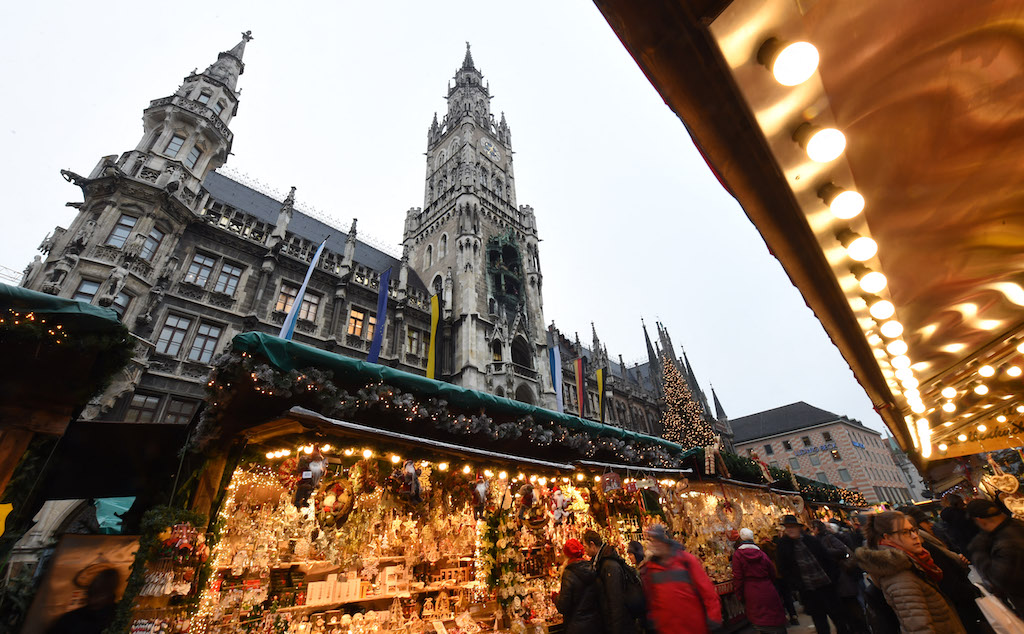From the end of paper tickets for Ryanair flights to new rules around loans and more money for midwives, here are the changes you’ll want to know about this November.
November in Germany marks a significant step towards winter as the last of the yellow-brown leaves fall from the trees and the sun begins to set even before most people have returned home from work.
But not all is dark and gloomy. The end of November also brings the start of advent, celebrated with traditions that bring a touch of warmth and togetherness which can do wonders to counteract the cold nights.
November this year also brings practical changes for everyone living in Germany, including a bit less bureaucracy for some business owners and a reason to upgrade your TV (if it’s pretty old that is).
Ryanair abolishes paper boarding passes
Passengers flying with Ryanair will essentially be required to carry a smartphone starting November 12th.
From that date on, the budget airline will switch completely to digital boarding passes.
Digital boarding passes can be generated directly in the “myRyanair” app during check-in and shown at boarding.
But the app is not strictly mandatory for all travellers: The ticket booker can also forward electronic boarding passes to the mobile wallet of their fellow travellers.
Those planning to travel without a smartphone, however, may have difficulties with Ryanair’s new check-in process.
According to the airline, almost 80 percent of its more than 206 million passengers are already using digital tickets.
READ ALSO: Ryanair to cut more flights from nine German cities
Public broadcasters can only be seen with modern devices
Older television sets without HD reception will no longer be able to receive public channels in Germany from November 18th.
After ARD, the ZDF family of channels is also discontinuing satellite broadcasting in SD quality. This applies to ZDF, ZDFinfo, ZDFneo, 3sat and KiKA.
Large cable network operators such as Vodafone and Pyur will also switch off the last public broadcasters in SD this year.
Old TV sets lacking HD reception wont be able to tune-in to ZDF channels after November. Photo: picture alliance / Ina Fassbender/dpa | Ina Fassbender
If you haven’t upgraded, you need a new TV or an additional device for ARD and ZDF.
READ ALSO: How you’ll be affected by a change in Germany’s broadcasting fee
Advertisement
Get the most out of your Kulturpass
The Kulturpass for 18-year-olds ends this year. It wont be renewed again for the coming year, according to the Kulturpass website.
If you have any budget left on your pass for museums, concerts, cinema or books, use it over the coming weeks. Pass holders can use their remaining budgets until November 30th, and can then pick up those orders until December 15th.
New ‘Buy Now – Pay Later’ rules
Starting this November, small and short-term loans up to €200 will be regulated more strictly: Starting November 20th, a credit check must be carried out when granting mini loans and “Buy Now – Pay Later” offers.
Banks will also be responsible for informing customers more clearly about what their loans will cost going forward.
Both changes come as part of the EU Consumer Credit Directive, which originally came into force on October 30th, 2023 and is intended to protect low-income households from accumulating too much debt.
Advertisement
Other business changes: More money for midwives and less paperwork for moving
Around 19,000 freelance midwives in Germany are expected to benefit from a new collective contract that comes into force from the beginning of November. From then on midwives who work outside clinics should earn €74 in hourly wages. Also, the billing of services is to be simplified and one-to-one care for pregnant women is to be promoted.
Business owners who plan to move their business from one part of Germany to another will benefit from a bit less bureaucracy going forward. Starting in November, business owners need only notify the trade office of their new location when they move to another registration district. That office will then contact the other to carry out the deregistration process.
November holidays
November brings a number of Christian holidays that are observed in various parts of Germany, starting with All Saint’s Day on the 1st followed by All Soul’s Day on the 2nd, and culminating with the protestant holiday of Dead Sunday on the 24th, when believers spend time thinking about the departed.
In the midst of all of this is the charming St. Martin’s Day tradition, which children in many parts of Germany celebrate by taking to the streets with little home-made lanterns.
READ ALSO: What is St Martin’s Day in Germany and how is it celebrated?
If you live in Saxony, you’ll also be lucky enough to get a day off for Buß- und Betttag, or the Day of Prayer and Repentance: another protestant holiday that falls on Wednesday, November 19th this year.
Advertisement
November 16th also marks Germany’s Volkstrauertag, or People’s Mourning Day, which commemorates those who have died in war and the victims of violent oppression. While this isn’t a public holiday, it’s what’s known as a silent holiday, which means that many states put dancing bans in place and will fly flags at half-mast.

Street view of Munich’s Christmas market. Photo by Christof STACHE / AFP.
Christmas market season begins
The Christmas market season is just around the corner: Most markets start in the week before the first Advent.
In Dortmund it starts on November 20th, on Berlin’s Alexanderplatz on the 24th, in Dresden on the 26th and in Nuremberg on the 28th.
READ ALSO: An essential guide to Bavaria’s Christmas markets this winter
In recent years, many municipalities have complained about increased Gema bills (related to royalty fees for copywrighted songs) for music at Christmas markets. However an agreement was reached on a discounted tariff for copyrighted sounds, so popular hits may be heard more often in the Christmas markets again.
Quick tip: You may want to opt out of LinkedIn’s AI training
Starting November 3rd, job search platform and social media website LinkedIn will begin using members’ personal data to train AI models.
According to LinkedIn, this could include any information and data you have shared publicly on the site, including your name and information about your work and education, location, and skills, as well as photos, articles, and comments you have posted. LinkedIn says it will not use private messages.
If you’d rather not contribute your information to the website’s AI training data set, you’ll need to manually opt out yourself. To do so, go to Settings & Privacy, then Data Privacy, followed by Data for Generative AI Improvement.
With reporting by DPA.
Disclaimer : This story is auto aggregated by a computer programme and has not been created or edited by DOWNTHENEWS. Publisher: thelocal.de








